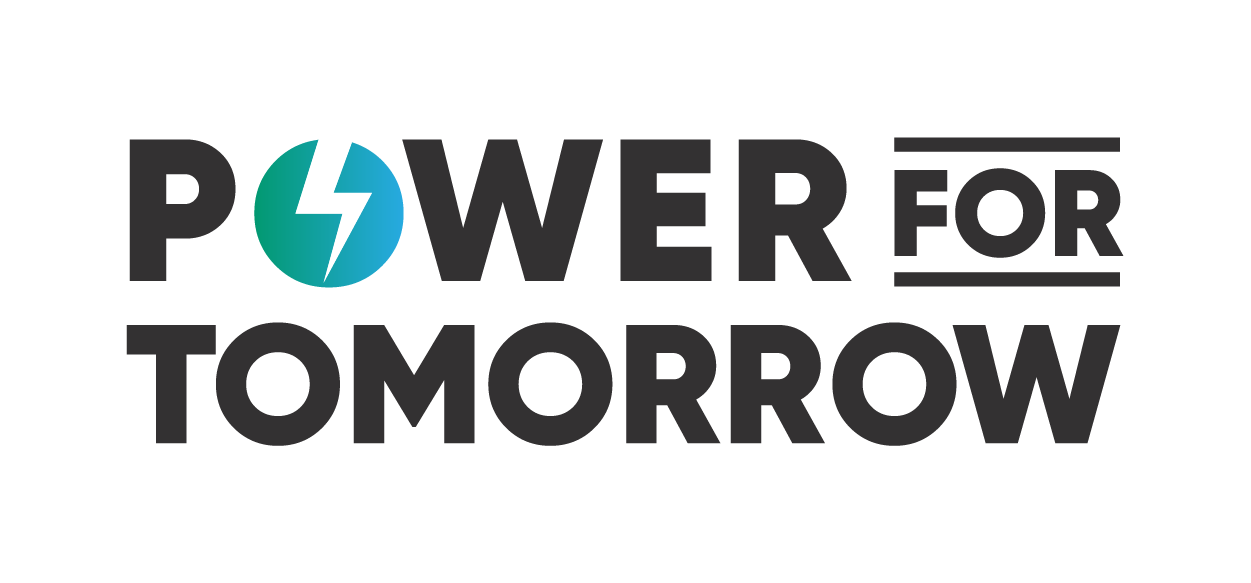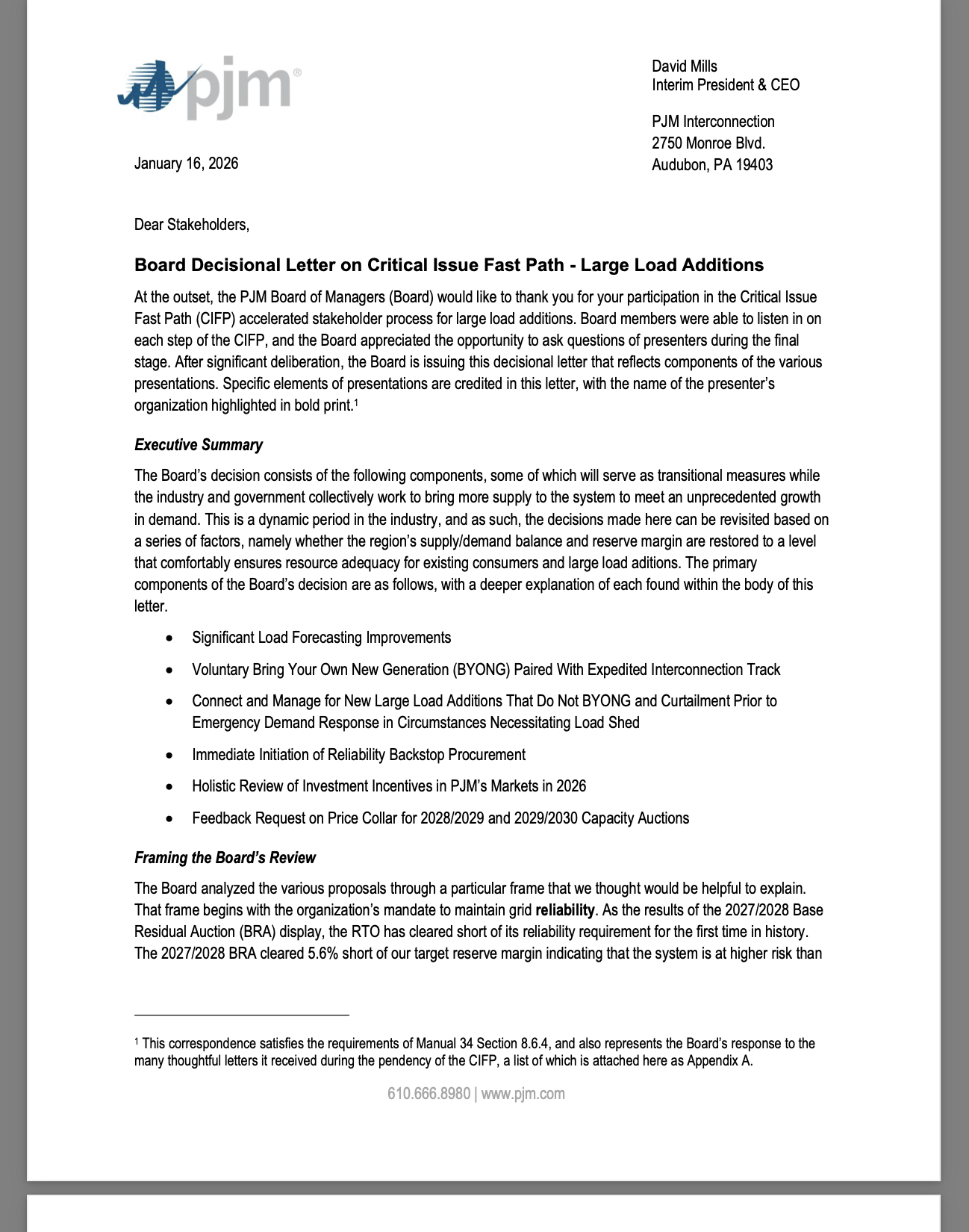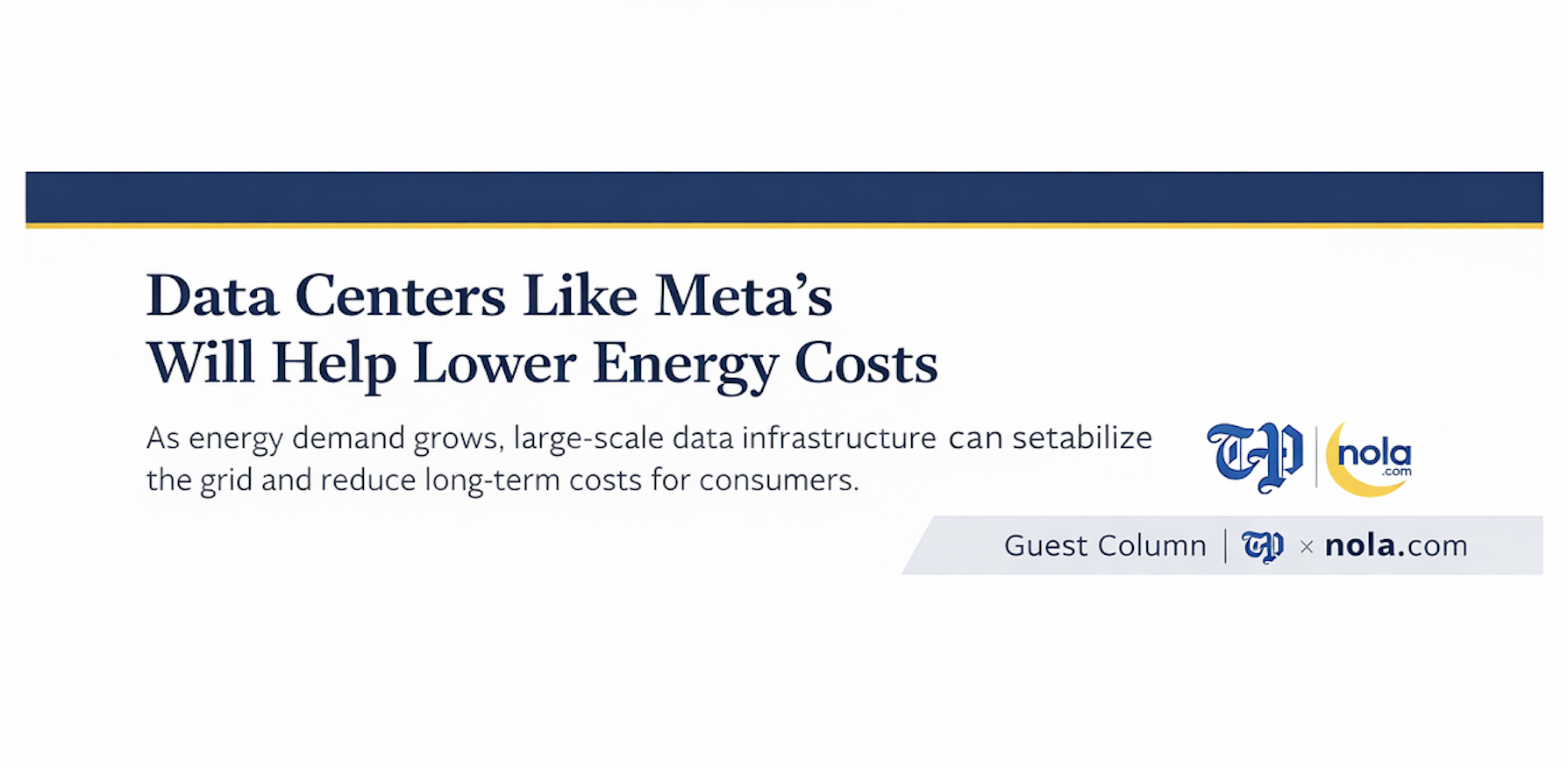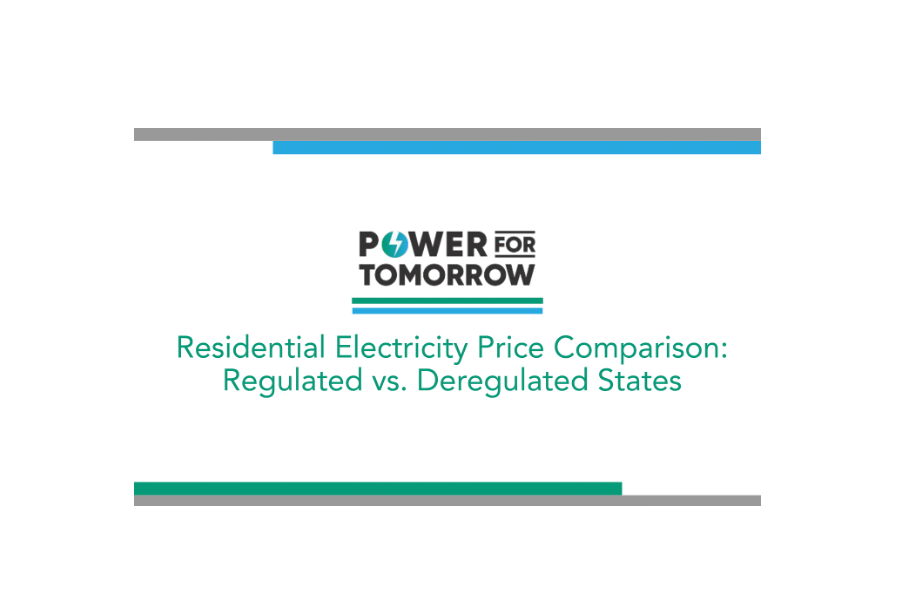
Power for Tomorrow is the nation’s leading resource for research, commentary, and information regarding how the regulated electric utility model protects consumers and supports environmental and public policy goals.
Our advocacy focuses on ensuring that the public, government officials, the media and other interested parties understand that sensible oversight of utilities is the best regulatory framework to ensure consumers have access to affordable, reliable, and increasingly clean energy.
In the News
Research
PJM’s new decisional letter on large load additions confirms what recent capacity auction results already showed: market signals alone are not delivering enough new generation to meet rapidly growing demand. For the first time, PJM cleared short of its reliability requirement.
Louisiana is proving that data centers don’t have to mean higher power bills for residents. On the contrary, strategic infrastructure investments tied to industrial growth can be used to improve grid reliability, boost economic growth and lower costs for everyone.
The millions of Americans who are struggling with under the weight of higher electric bills deserve real relief, not false promises. Weatherizing homes, investing in efficiency, and strengthening the grid can ease some of the costs. But deregulation is a proven failure because it doesn’t lower bills – it raises them. Lawmakers should reject this policy and focus instead on solutions that actually protect customers, not exploit them.
National groups are sniffing around with a risky idea called electric deregulation. It’s being sold as “choice,” but don’t be fooled. Deregulation won’t lower your power bill. It’ll raise it.
For years, proponents of electricity deregulation have argued that competition lowers costs for consumers. New data tells a very different story.
According to new proprietary analysis by Power for Tomorrow (PFT), informed by 2024 Energy Information Administration (EIA) data, residential customers in deregulated electricity states are paying dramatically more for power than those in traditionally regulated markets.
A recent poll of Louisiana voters, conducted by Peak Insights, reveals a striking trend: while many initially support electricity deregulation, that support collapses once they learn what it actually means.





